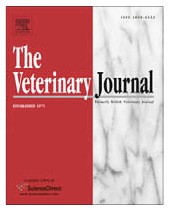excerpt...
"The purpose of this review is to examine the number, prevalence and impact of disorders related to conformation aspects of the breed standards. This review is part of a larger study into all inherited disorders in pedigree dogs. The second part of this work deals with non-conformational inherited disorders (Summers et al., 2009)."
 Inherited defects in pedigree dogs. Part 1: Disorders related to breed standards
Inherited defects in pedigree dogs. Part 1: Disorders related to breed standards
Authors: Asher L1, Diesel G, Summers JF, McGreevy PD, Collins LM.
Abstract
The United Kingdom pedigree-dog industry has faced criticism because certain aspects of dog conformation stipulated in the UK Kennel Club breed standards have a detrimental impact on dog welfare. A review of conformation-related disorders was carried out in the top 50 UK Kennel Club registered breeds using systematic searches of existing information. A novel index to score severity of disorders along a single scale was also developed and used to conduct statistical analyses to determine the factors affecting reported breed predisposition to defects. According to the literature searched, each of the top 50 breeds was found to have at least one aspect of its conformation predisposing it to a disorder; and 84 disorders were either directly or indirectly associated with conformation. The Miniature poodle, Bulldog, Pug and Basset hound had most associations with conformation-related disorders. Further research on prevalence and severity is required to assess the impact of different disorders on the welfare of affected breeds.
 Inherited defects in pedigree dogs. Part 2: Disorders that are not related to breed standards
Inherited defects in pedigree dogs. Part 2: Disorders that are not related to breed standards
Authors: Jennifer F. Summers, Gillian Diesel, Lucy Asher, Paul D. McGreevy, Lisa M. Collins
Abstract
Recent debate concerning health problems in pedigree animals has highlighted gaps in current knowledge of the prevalence, severity and welfare implications of deleterious inherited traits within the pedigree-dog population. In this second part of a two-part review, inherited disorders in the top 50 UK Kennel Club registered breeds were researched using systematic searches of existing databases. A set of inclusion and exclusion criteria, including an evidence strength scale (SEHB), were applied to search results. A total of 312 non-conformation linked inherited disorders was identified, with German shepherd dogs and Golden retrievers associated with the greatest number of disorders. The most commonly reported mode of inheritance was autosomal recessive (71%; 57 breed-disorder combinations), and the most common primarily affected body system was the nervous sensory system. To provide a true assessment of the scale of inherited disorders in the pedigree dogs studied more effort is required to collect accurate prevalence data.
 Donate
Donate

Recommended Comments
There are no comments to display.
Join the conversation
You can post now and register later. If you have an account, sign in now to post with your account.
Note: Your post will require moderator approval before it will be visible.